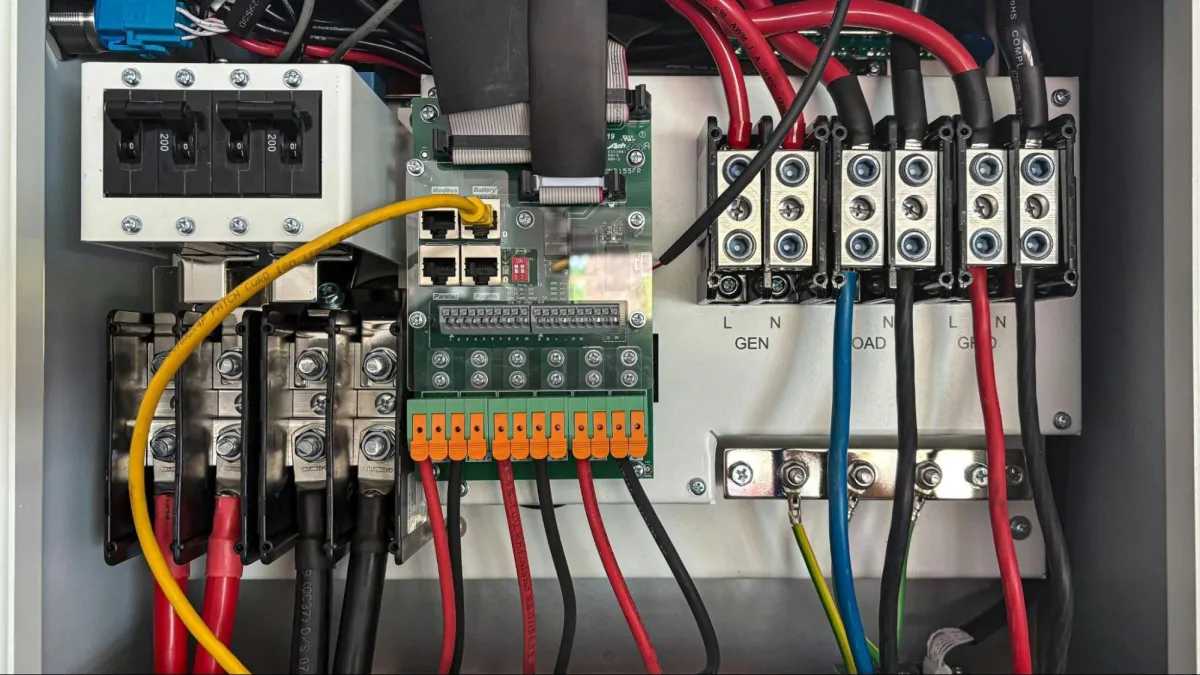Never wait for help. We're available 24/7.
Call Now: 781-782-2382
Never wait for help. We're available 24/7.
Call Now: 781-782-2382

When you turn on a light or power up an appliance, you likely don’t give much thought to the system behind it. Your home's electrical panel serves as the central hub, distributing power throughout your space—much like the heart circulates blood to keep your body functioning. However, just like any essential system, electrical panels can age, become overloaded, or develop issues that require attention.
Have you noticed flickering lights, frequently tripping breakers, or an unusual odor near your panel? These could be signs that your electrical panel may need repair or replacement. Addressing these issues promptly can prevent safety hazards and ensure your home’s electrical system remains efficient and reliable.
At Castro Electric Corp, we’ve created a comprehensive guide to help you identify when your electrical panel requires maintenance, how to determine whether a repair or replacement is necessary, and best practices for keeping your system in top condition. Our goal is to provide clear, practical information to help you make informed decisions about your home’s electrical safety.
Your electrical panel is the core of your home's power distribution system, directing electricity to various circuits to keep your appliances and devices running efficiently. Though it may appear complex with its array of breakers and wiring, its role is straightforward—it manages and regulates the flow of electricity throughout your home.
The key components of an electrical panel include the main breaker, which controls the overall power supply, and individual circuit breakers, which distribute electricity to specific areas and appliances. Every time you flip a switch, you're effectively communicating with these workers and instructing them to control the flow of electricity accordingly. Understanding these elements is essential for maintaining a safe and efficient electrical system.
Just as with any other system, your home's electrical panel is not invincible. Over time, electrical panels may develop issues that require immediate attention. Your responsibility is to stay alert for signs that your electrical panel might be stuttering.
Common warning signs include:
Flickering lights, especially when multiple appliances are in use, indicating an overloaded system.
Frequent circuit breaker trips, which suggest the panel is struggling to handle the electrical load.
A burning smell near the panel, which may indicate overheating wires and a potential fire hazard.
Ignoring these warning signs can compromise both the functionality of your electrical system and the safety of your home. Addressing potential issues early helps prevent costly damage and dangerous electrical failures.
It's absolutely crucial to keep your home's electrical panel in good working order. Otherwise, you may be taking some substantial risks. A malfunctioning electrical panel presents serious safety risks. One major concern is power surges, which can damage appliances and electronic devices. Additionally, outdated or faulty panels increase the risk of electrical fires, which often occur due to overheating components or overloaded circuits.
Many homeowners are unaware of an issue until a significant problem arises. Routine inspections and proactive maintenance are crucial to ensuring your panel operates safely and efficiently, reducing the risk of unexpected failures.
You've recognized the importance of addressing electrical panel issues, but should you repair or replace it when faced with a malfunctioning panel? Determining whether to repair or replace your electrical panel depends on several factors:
Age: Panels typically last 25–30 years. If yours is outdated, replacement may be the safest and most cost-effective option.
Damage Severity: Minor issues, such as a faulty breaker, can often be repaired. However, extensive damage may require a full panel upgrade.
Increased Electrical Demand: If your home’s electrical needs have grown—due to new appliances, home renovations, or a home office setup—upgrading to a higher-capacity panel may be necessary.
While a simple repair may fix temporary issues, a total replacement can future-proof your home and prevent further mishaps. In a world that's increasingly powered by technology, ensuring your home's electrical panel is ready to handle the load is no small decision
The electrical panel in a residence serves as the central component of the electrical system, responsible for distributing power to every room. All devices and appliances that operate on electricity within the home rely on this crucial hub. When complications arise, it is essential to adopt a systematic approach to identify and resolve the issue effectively.
Professional electricians follow a structured process to diagnose and repair electrical panel issues:
Initial Assessment: A thorough inspection identifies issues such as overheating components, unusual sounds, or inconsistent breaker performance.
Diagnosis and Repair: Depending on the findings, the electrician may replace faulty circuit breakers, tighten loose connections, or perform more extensive repairs.
Final Testing: After the repair, the system is tested to ensure it is functioning safely and efficiently.
Upon identifying the various issues, the process of problem-solving commences. It may become evident that replacing a circuit breaker is necessary, which represents a common and relatively uncomplicated solution. Regardless of the complexity of the problem, the experienced electrician will possess the requisite knowledge and tools to address the situation effectively.
Restoring a home to its luminous and inviting condition may involve straightforward measures, such as tightening connections or replacing a circuit breaker. However, there are instances in which a more extensive overhaul of components or wiring may be required.
Having navigated the complexities of repairs, you may now be considering, "I do not wish to undergo that process again in the near future." Our objective is to assist you in effectively maintaining your electrical panel, ensuring its longevity and optimal performance. Preventative maintenance is essential to keeping your electrical panel operating efficiently. Best practices include:
Regular Inspections: Schedule professional check-ups to identify potential issues before they escalate.
Safe Power Usage: Avoid overloading circuits by distributing high-powered appliances across different breakers.
System Upgrades: As technology advances, upgrading your panel ensures it can accommodate increased power demands safely.
Consulting a qualified electrician is the most effective strategy for maintaining your panel. Professionals possess the requisite experience, knowledge, and tools to ensure that all systems are safe, efficient, and compliant with established standards. Therefore, one should not hesitate to seek their expertise when necessary. Consistent care and maintenance are vital for ensuring operational reliability and the safety of your home.
Your home's electrical panel is the heart of its power distribution, ensuring that all appliances and devices run smoothly. We’ve highlighted key warning signs of a failing panel—such as flickering lights, frequent breaker trips, or a burning smell—signs that demand immediate attention to prevent serious hazards like power surges or electrical fires. Addressing these issues promptly keeps your home safe and efficient.
When panel issues arise, deciding between repair and replacement depends on factors like age, damage severity, and power demands. Sometimes, a simple fix suffices, while other cases call for a full upgrade. Regular maintenance, responsible power usage, and professional inspections help prevent future issues. Now that you're equipped with the knowledge, take proactive steps to ensure your home remains safely and reliably powered.

Website by GetCharlie.io